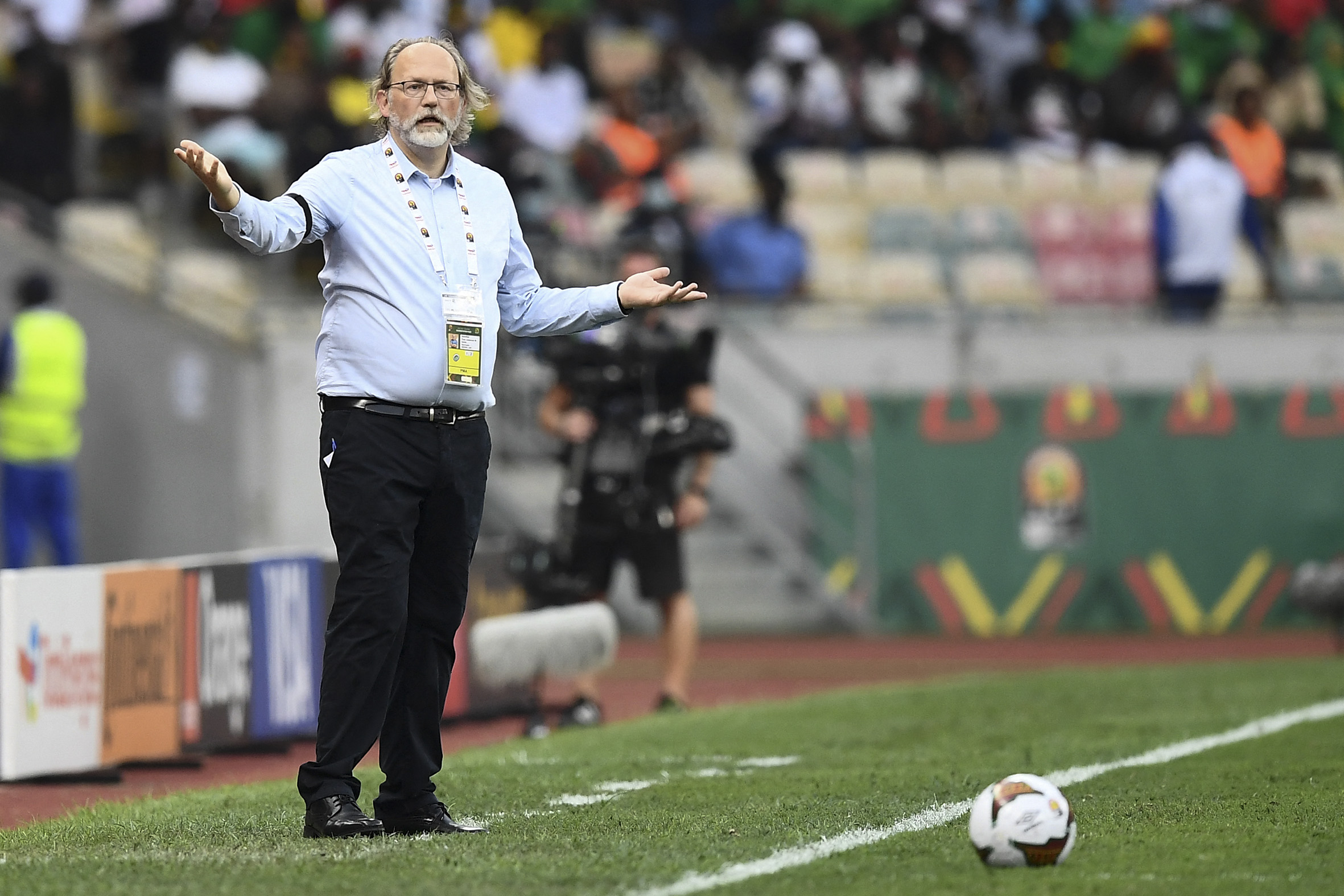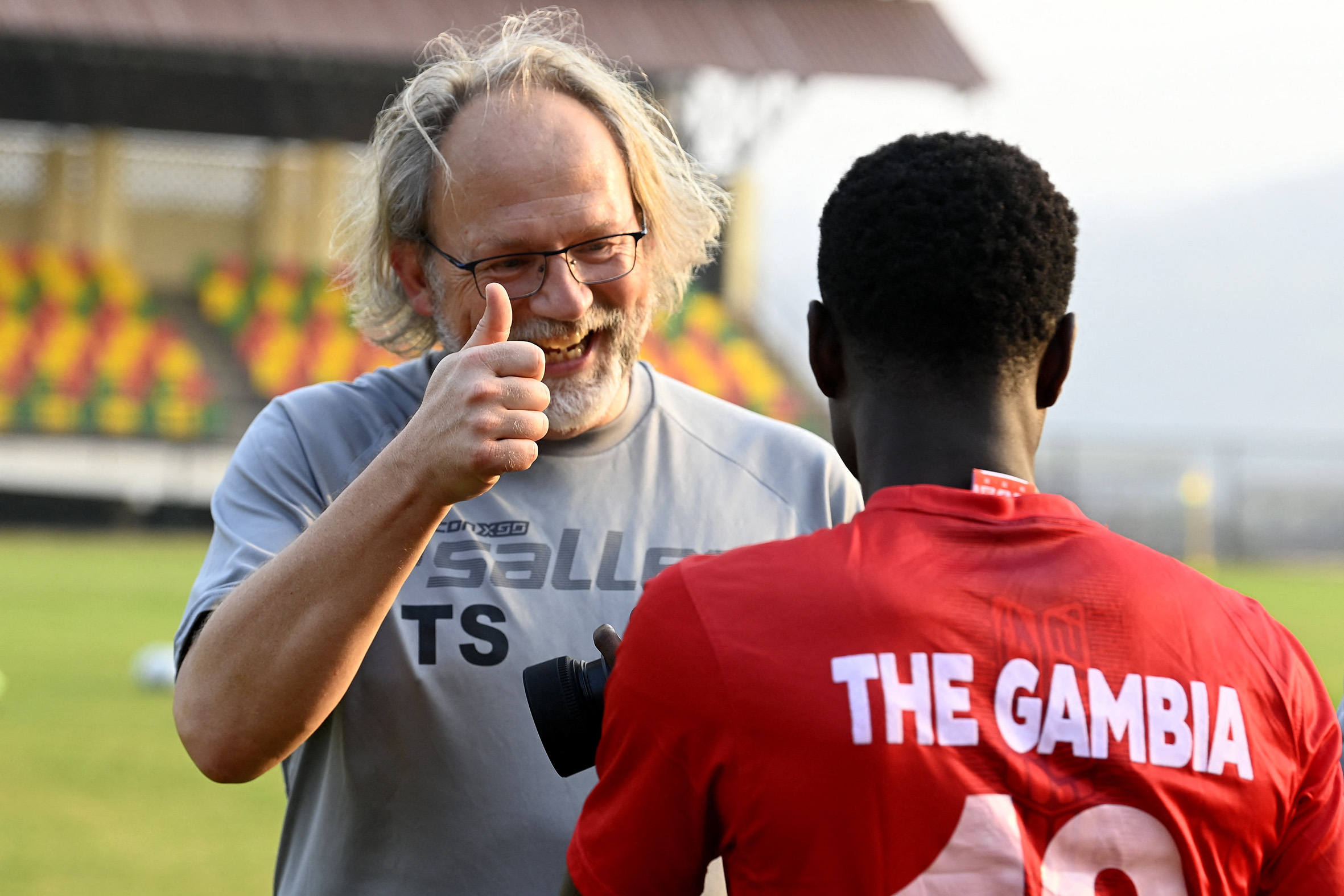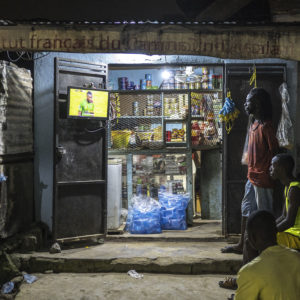The Gambia face another long Afcon journey
Despite making it to the last eight in a dream run in Cameroon, the Scorpions have to win pre-qualifiers again simply to vie for a spot in 2023.
Author:
24 March 2022

The Gambia are back at square one. The quarterfinalists at the Africa Cup of Nations (Afcon) this year were a revelation, but Africa’s smallest non-island country with its population of just over 2.5 million people, is back playing pre-qualifiers for the 2023 tournament.
The Scorpions squeezed past Djibouti on penalties to reach the main qualifiers for the 2021 Afcon, held in Cameroon earlier this year because of the Covid pandemic. It was the start of an incredible journey that culminated in a last-eight match against the hosts. But to be among the 48 nations that will battle it out in the group stage of the qualifiers for the 2023 Afcon, The Gambia has to get past Chad.
Coach Tom Saintfiet is aggrieved. “It’s absurd and not correct. It would have been fairer to consider two options, the 24 teams participating in this year’s tournament qualify for the main round of qualifications or you wait until the new Fifa rankings are out.”
A nomad coach from Belgium with experience in Yemen, Trinidad and Tobago, Namibia, Malawi, Togo and other countries, Saintfiet took The Gambia role in 2018 when the Scorpions had not won a competitive match in five years and were lingering in the lower levels of Fifa’s ranking. His team’s lack of pedigree didn’t deter the Belgian, who professionalised the back-room staff and scouted the diaspora to build a competitive squad.

The Gambian squad at Afcon included players from Portuguese to South Korean leagues, as well as six core Italy-based players. Sampdoria’s Omar Colley anchored the defence, Piacenza’s Yusupha Bobb proved versatile in the midfield, and the assists and slick finishing of Bologna’s Musa Barrow were vital to the team’s success.
The Gambia defeated Mauritania and Tunisia in the group stages and Guinea in the last-16 round, only falling to the attacking prowess of Cameroon’s Karl Toko Ekambi in the quarterfinal.
“We were actually quite disappointed,” says Saintfiet. “Strange, because in a way no one expected us to make it to that stage of the competition. But once you’re in that haze, you know, in that winning mood… We had already prepared the boys with videos from Denmark 1992, Greece 2004 and Zambia 2012. A miracle would perhaps have been possible, but the tournament was a wonderful experience.”
No longer the underdogs
The delayed Afcon was not easy for The Gambia. A Covid outbreak in Doha, Qatar, disrupted their training camp. Once in Cameroon, there were security concerns at their base camp in Buea, because of the Amazonia group’s breakaway bid, and a bout of food poisoning struck on the eve of their Guinea match.
Even so, The Gambia were among the continent’s best. Exceeding all expectations, the Scorpions spearheaded Africa’s burgeoning middle class, which included Equatorial Guinea, Malawi and Comoros. In Saintfiet’s view, Burkina Faso and Guinea are also good examples. The 2013 finalists and 2025 hosts respectively have been consistent performers in the continental finals in the past decade. They are difficult to dislodge and the Stallions have combined that with deep runs at the Afcon.
Saintfiet knows the most difficult task lies ahead: proving that The Gambia’s sixth place was not a fluke or a one-off but the dawn of the country’s rise on the continent. The development of individual players will be crucial to the Scorpions’ progress. Captain Pa Modou Jagne and Ebrima Sohna retired from the national team shortly after the Afcon. Both were part of the generation that upset Brazil at the Under-17 World Cup in 2005 but failed to advance from the group stages.
Related article:
“It’s great to shine in a tournament, and it won’t be easy to reach the next finals,” says Saintfiet. “Over the next five to 10 years, The Gambia can develop into a respected African football country that frequently – perhaps not always, but frequently – qualifies for the major tournaments. In the next tournament, anything less than our achievement in Cameroon will be seen as a failure, but the group can handle the pressure.
“A few players are at a turning point. We have Ebrima Colley at Spezia, Ebrima Darboe at AS Roma. Our Under-20s are very successful. James Gomez, 19, plays for AC Horsens in Denmark. If these players can take steps forward in the coming years, I can see a great future. We have to develop the team, renew and integrate young players. The Gambia should be able to grow into a respected football nation in the coming years. That should be the ambition.”
A by-product of The Gambia’s success in Cameroon is that they are no longer underdogs, a tag the team benefitted from, dropping deep to lurk on the counter. Saintfiet defended his strategy as a “conscious choice” that was “understanding of our own qualities” and one that eschewed “naive, attacking football”. This new status could compel The Gambia to seize the initiative and play more expansively against minor opposition, like Chad who they narrowly beat 1-0 thanks to a late winner by Bubacarr Trawally in the first leg with the return leg scheduled for 29 March.

